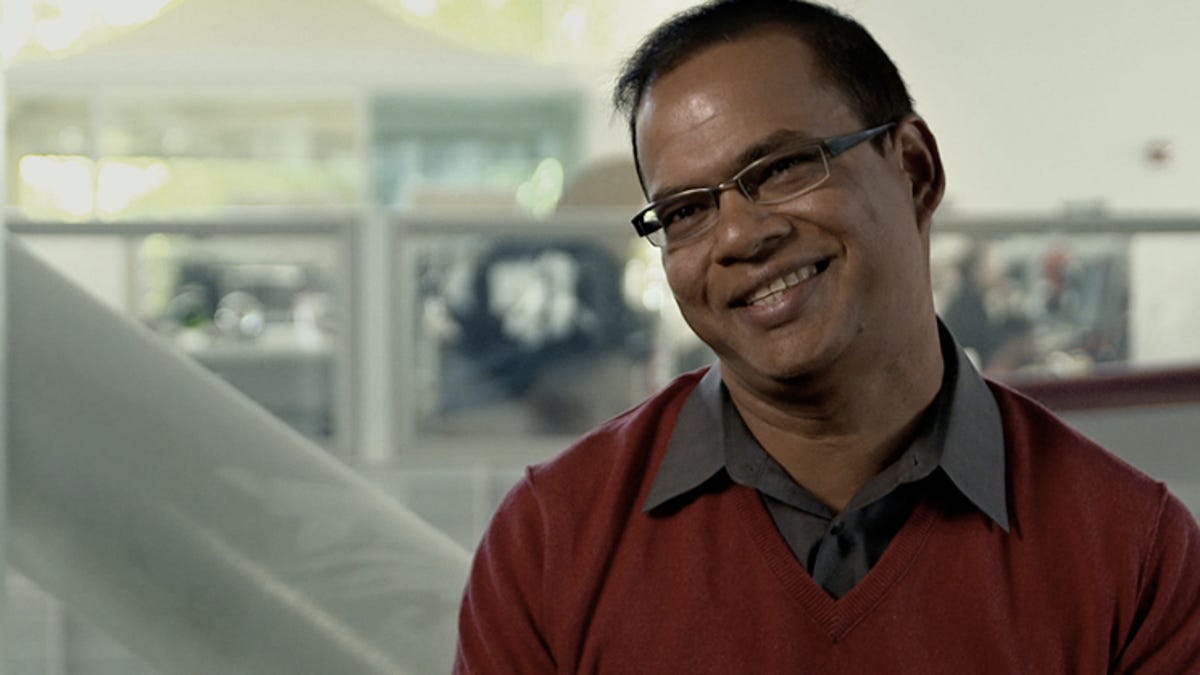Documentary throws the book at Google scanning project
"Google and the World Brain" asks whether a universal library belongs in the hands of a corporation, no matter how well-intentioned.

PARK CITY, UTAH--The most arresting moment in "Google and the World Brain," Ben Lewis' thoughtful new documentary about the search giant's effort to scan all the world's books, takes place not in Mountain View or a courtroom but rather a monastery high above Catalonia in Spain.
The film's globetrotting crew is interviewing Father Damiá Roure, who runs the library at the Benedictine abbey of Montserrat, about what happened when Google came to digitize the library's collection. Roure speaks happily of the Googlers' visit, explaining that their efforts allowed the monks to bring their collection -- which dates to the library's founding in the 11th century -- to the wider world.
As he finishes speaking, a filmmaker just out of the frame asks about what else Google might do with the information found in those books. What if, she asks, Google wanted to sell the information they had scanned in those books? Should the monks get a cut of the sale? Is Google's project fair to the library? The monk's face goes blank, and for several agonizing seconds we watch as he works through the implications of the filmmaker's question. A flash of doubt crosses his face -- has the search giant put one over on him? Eventually Roure says he can speak only to the book-scanning effort, and not to its fairness. The documentary cuts away.
The monk's mixed feelings about the book-scanning project are mirrored by many interviewees in the 89-minute documentary, which premiered this week at the Sundance Film Festival. And while the film contains much hand-wringing about whether a corporation should be able to own the world's knowledge, it also offers a relatively straightforward account of the Google Books project and the legal case against it. At the end it credits Google with galvanizing public libraries into putting more of their collections online.
"I also think you can watch this film and side with Google," Lewis said during a question-and-answer period following a screening today.
Lewis' documentary starts in 1937, when H.G. Wells predicted the creation of a "world brain" -- a giant global library containing the sum of human knowledge. Once built, Wells believed, the library would give rise to a higher form of intelligence. Google began scanning books in 2002, relatively early in its history, working with major university libraries around the globe. By 2005 the company had scanned more than 10 million books, with more than half of them still protected by copyright. In the autumn of that year, the Author's Guild filed a class action lawsuit against Google, seeking damages for its writers and new protections for digital copies of copyrighted works.
After three years of intensive negotiations, Google and the Author's Guild emerged with a 350-page settlement agreement. Among other things, Google agreed to give authors in the suit $60 per copyrighted work, in exchange for the right to start selling digital books online. And it's this point that turns out, strangely, to be the real start of the film, as what the filmmakers describe as "a ragbag army of authors, helped by the occasional librarian" come together to protest the settlement and, in 2011, successfully get it rejected by a federal judge.
Along the way we hear from authors involved in the suit, including Charles Seife, Roland Reuss, and Mian Mian. We also hear from librarians who worked with Google on the project, some of whom -- including Harvard's Robert Darnton -- later came to have second thoughts about the company's methods.
Google responds
And what did Google have to say for itself? U.S. representatives for the company wouldn't agree to an interview about the book-scanning project. But senior vice president Amit Singhal did sit down with Lewis' crew to talk about the benefits of building a "Star Trek"-like computer that can answer any question. And Luis Collado, who manages the Google Books project for Spain and Portugal, sat down with the filmmakers to advocate for the project's benefits -- making the world's knowledge more accessible.
The trouble, as writer William Gibson is quoted as saying in the film: "Google is not ours." Sure, the company may make millions of books searchable today, critics say. But what would stop Google from later deciding to restrict that information in a severe way, or to charge for access? It is distrust, as much as a sense of unfairness over the company's scanning of copyrighted works, that informs criticism of the search giant.
To its credit, "Google and the World Brain" acknowledges that the issues raised by the book-scanning project go far beyond Google. For starters, in the years since 2002 several other corporations have started book-scanning projects of their own, with Microsoft, Amazon, and Baidu among them. And beyond the world of books, companies in every industry are working to amass giant bodies of data, containing personal information about millions of people, over which those same people have little to no control.
In the Q&A, Lewis compared today's Internet to "an alien from Mars" that just landed on Earth, fascinating but unknown in its motivations and capabilities. So far, all the alien has done is -- stick with him for a moment here -- passed gas.
"But then you think, (crap) -- what happens when this thing learns English?"

